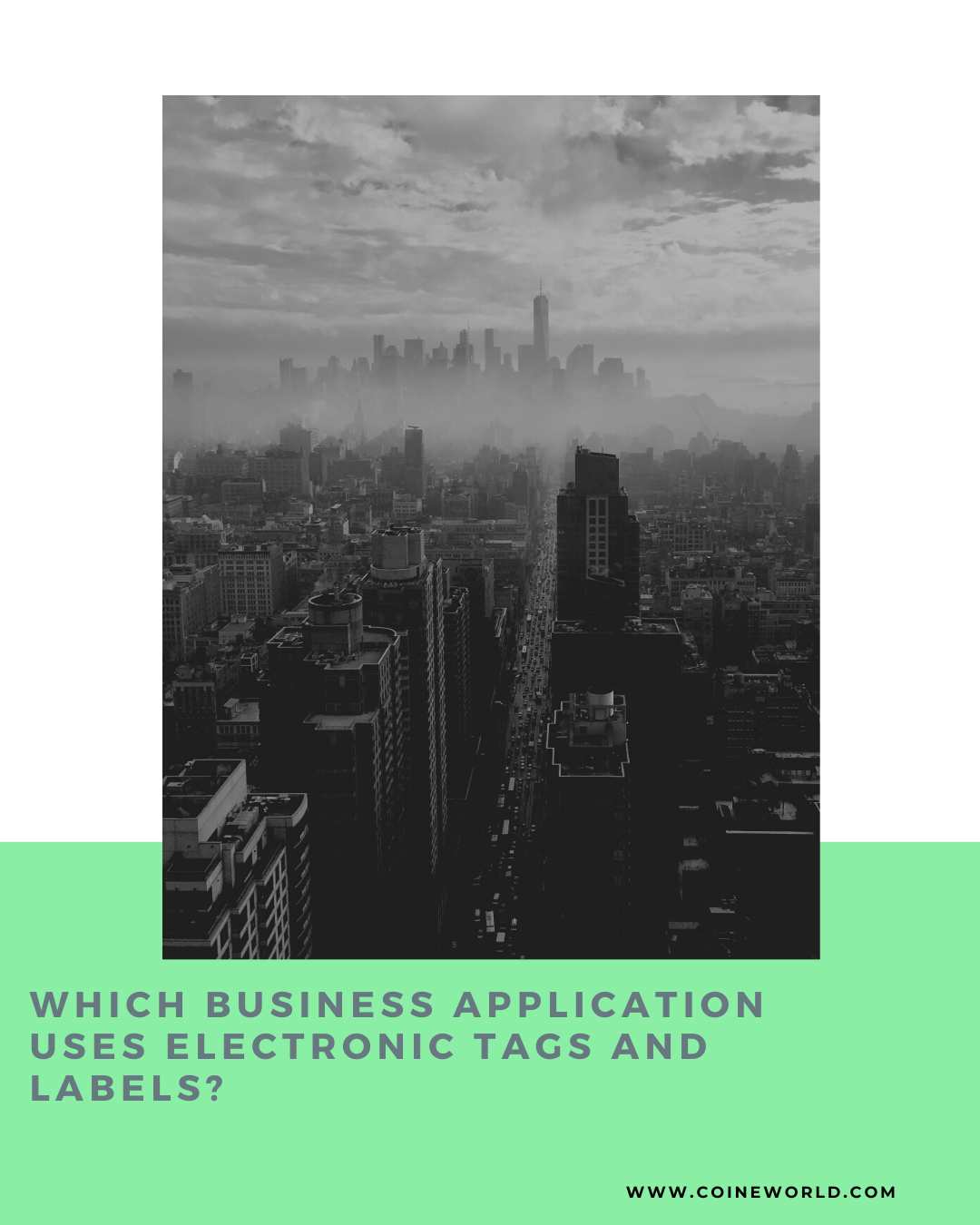With the advancement of IoT, e-commerce has been booming. There are numerous benefits to using smart labels and tags to manage your supply chain. But before you start implementing these solutions, you need to understand what application is best for you. The article highlights the most popular applications of smart labels and tags that you can use to ensure that your supply chain runs smoothly.
Introduction to electronic tags and labels
Electronic tags and labels are small, embedded devices that can be attached to products during the manufacturing process. They usually have a microprocessor and antenna inside them to communicate with other machines in your supply chain.
The biggest advantage of electronic tags is that they allow you to track products throughout production. This includes things like serial numbers, batch numbers, and product dimensions. You can also use electronic labels to keep track of product quality, condition, and location.
The use of electronic tags and labels may be put to a variety of various purposes; however, the most common ones are as follows:
1. E-commerce – You can use electronic tags to manage your e-commerce inventory better. For example, you can use them to track how many units of a product were sold each day or week or which products are getting reordered more frequently.
2. Production – You may use electronic tags to monitor items throughout the manufacturing process. This includes things like serial numbers, batch numbers, and product dimensions.
3. Supply chain – You can use electronic labels to keep track of product quality, condition, and location in your supply chain. 4. Retail – You can use electronic tags and labels to track the condition of products as they go through the retail supply chain. This includes inventory status, product return rates, and shelf-life data.
5. Service establishments – You can use electronic tags to monitor service quality at your service establishment, including things like wait times or evacuation rates.
Benefits of using electronic tags and labels in the business
There are a lot of benefits to using electronic tags and labels in the business. These are only a few of the more significant ones:
- Efficient time management – One of the biggest benefits of using electronic tags and labels is that they make managing your time more efficient. Instead of remembering multiple tracking numbers, you can use one tag or label for all your products. This reduces missed opportunities and makes tracking your progress and results easier.
- Improved accuracy – One of the biggest benefits of electronic tagging is improving the accuracy of your data. This means that you’ll be able to accurately track inventory, product quality, and other important business information.
- Reduced errors – Electronic labeling also reduces the number of errors in your data processing system by providing a uniform way to store and manage information across different systems and databases. Like any other form of data management, electronic labelling requires a certain level of sophistication to be effective. If you’re not sure whether or not it’s the right tool for your business, give us a call at (866) 742-7027, and we can help you determine if electronic labelling is right for you.
Types of electronic tags and labels
There are a few different electronic tags and labels that can be used in business. These include RFID (radio frequency identification) tags, NFC (near field communication) tags, and QR codes.
Radiofrequency identification
RFID is the most common type of tag used in business. These tags use radio waves to identify specific objects or items. This makes them perfect for tracking inventory, product quality, and other important information.
NFC tags
Near field communication is another type of tag that uses radio waves to identify specific objects or items. NFC tags are typically used for contactless payments and other similar applications.
QR codes
QR codes are special types of barcodes that can track inventory, product quality, and other important information. QR code scanning apps can be downloaded onto smartphones or tablets and will allow you to scan the code and get information about the item or object it’s attached to.
Applications for electronic tags and labels in the business
There are a few different applications for electronic tags and labels. The most common ones include inventory tracking, product quality control, and contactless payments.
Inventory tracking
Utilizing electronic tags and labels allows you to keep track of inventory levels. This makes it easy to keep an accurate track of what’s available in stock and ensures that all products meet customer demand.
Product quality control
Another benefit of using electronic tags or labels is that they can help control product quality. This allows companies to ensure that the products they’re selling are of the highest possible quality.
Contactless payments
Using electronic tags or labels has many advantages, one of which is the ability to accept contactless payments. This means businesses can easily collect payments from customers without removing any money from their wallets.
Implementation tips for using electronic tags and labels in the business
There are a few things to keep in mind when implementing electronic tags and labels in the business:
- Ensure compatibility with your present systems before acquiring new technologies.
- You’ll need to install or register the tags or labels with your system.
- You’ll need to create policies and procedures for using them effectively.
Conclusion
In this article, you’ve learned about the benefits of using electronic tags and labels in the business. You’ve also learned about some implementation tips for getting started. If you’re ready to start using these technologies in your business, be sure to read our articles on how to set up an inventory system and create a quality control program.
